August 4, 2020
Major drive underway to harness voting power of the poor around a policy agenda
Data on low-income voter study available for all 50 states
EMBARGOED COPIES OF REPORT AVAILABLE
(Embargoed until 8 a.m. EDT on Tuesday, Aug. 11 )
Potential poor and low-income voters across the country have the power to affect the outcome of 16 U.S. Senate elections and the presidential race, according to an embargoed study released Tuesday by the Poor People’s Campaign.
Robert Paul Hartley, an assistant professor at Columbia School of Social Work, wrote the study, titled “Unleashing the Power of Poor and Low-Income Americans: Changing the Political Landscape.”
Low-income people are less likely to vote in national elections than those with higher incomes for many reasons, including that candidates don’t speak to their issues; they don’t think their vote will make a difference; and/or they have mobility/time impediments.
But, based on data from 2008-2016, if those poor and low-income people matched the voting rates of those with higher incomes, then there are 16 states where the additional voters could meet or exceed the midterm election margins of victory, the study says.
Thirteen of those states have Senate elections in 2020, and the campaign is drawing on this study to inform its organizing approach to November.
“We believe this evidence supports our campaign’s analysis that organizing can change the narrative of our electoral process and lead to policies that are just and representative for all Americans,” writes Shailly Gupta Barnes, the campaign’s policy director, in the foreword to the study.
Among the key findings of the study written by Hartley, faculty affiliate of the Center on Poverty and Social Policy and Columbia Population Research Center, are:
- Low-income voters are about 22 percentage points less likely to vote in national elections than those with higher incomes.
- Low-income eligible non-voters make up about one-fifth of the total electorate in states like Arkansas, Kentucky, Mississippi, New Mexico, Oklahoma, Tennessee and West Virginia, or in several more states for midterm election years.
- An increase of at least 1% of the non-voting, low-income electorate would equal the margin of victory in the 2016 presidential election in Michigan or a 4% to 7% increase in states such as Florida, New Hampshire, Pennsylvania or Wisconsin.
The evidence in the study “is not intended to diminish the impact of voter suppression that might target low-income or minority voters, nor the role of gerrymandering, which has been struck down in some places as unconstitutional,” Hartley writes in the study’s conclusion. “Even though individuals report one reason for not voting, other reasons may also matter, including accessibility. Ultimately, it is true that low-income Americans are less likely to vote, yet it does not have to be that way.”
Nationally, 140 million people are poor or low-income, or more 43% of the population. That includes 60.4% of Black people (26 million); 64.1% of Latinx people (38 million); 40.8% of Asian people (8 million); 58.9% of Native and Indigenous people (2.14 million) and 33.5% of white people (66 million).
Of the 225 million who are eligible to vote, 63 million are poor or low-income. The report focuses on the 34 million potential poor and low-income voters who did not participate in the 2016 election.
While the Poor People’s Campaign: A National Call for Moral Revival doesn’t endorse parties or candidates, it does elevate issues of importance to poor and low-income families.
In Kentucky, for example, the campaign organized among poor and low-income people for years around an agenda that included voting rights, housing, good jobs, education and health care.
These and other issues were taken up by then-Attorney General Andy Beshear, who ran for governor on a platform similar to the PPC’s in 2019. His victory over incumbent Matt Bevin can be attributed in part to the organizing and participation of poor and low-income voters before and leading up to that election.
The study shows poor and low-income people could have met or exceeded the average margins of victory from 2008-2016 for U.S. Senate races in Alaska, Arizona, Arkansas, Colorado, Illinois, Kentucky, Mississippi, Missouri, Montana, Nevada, North Carolina, Ohio, Tennessee, Texas, Virginia and West Virginia.
All but three of these states — Missouri, Nevada and Ohio — are holding U.S. Senate elections in November.
The study also contains information for the 2016 presidential elections and where the impact of low-income eligible voters would meet the margins of victory, including in key battleground states.
Informed by this study and its organizing over the past several years, on July 26 — 100 days from the Nov. 3 election — the Poor People’s Campaign began its voter outreach effort called “We Must Do MORE: Mobilizing, Organizing, Registering, Educating People for a Movement that Votes.”
The effort will focus on the following states: Kentucky, Texas, Michigan, Maine, Alabama, North Carolina, South Carolina, Arizona, Kansas, Georgia, Mississippi, West Virginia, Virginia, Wisconsin, Ohio and Pennsylvania, based on their importance in the presidential election, U.S. Senate races or both.
The campaign will reach out to poor and low-income voters and potential voters about its Jubilee Platform to build power around policies that start by meeting the needs of the poor, including health care for all, paid sick leave and a $15 minimum wage.
An online news conference will be held at 1 p.m. EDT Aug. 11 with Hartley and Gupta Barnes; newly engaged voters; and the campaign’s national co-chairs, Rev. Dr. William J. Barber II and Rev. Dr. Liz Theoharis.
Contact: Martha Waggoner | [email protected] | 919-295-0802
The Poor People’s Campaign: A National Call for Moral Revival, is building a broad and deep moral fusion movement rooted in the leadership of poor people to unite our country from the bottom up. We demand that both major political parties address the interlocking injustices of systemic racism, poverty, ecological devastation, militarism and the distorted moral narrative of religious nationalism. Our updated agenda, A Moral Policy Agenda to Heal America: the Poor People’s Jubilee Platform, addresses these issues.
